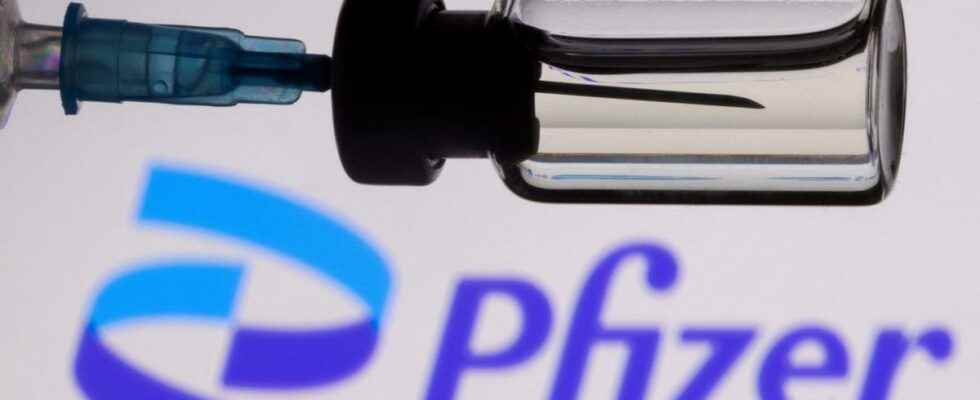The amount announced on Tuesday exceeds the initial forecast by two billion dollars.
Pfizer plans to sell $34 billion of its anti-Covid vaccine in 2022, of which it now sells a version adapted to the Omicron variant, or $2 billion more than expected until then, the pharmaceutical group announced on Tuesday. The company has therefore revised upwards its forecast for total turnover for the year, now expected between 99.5 and 102 billion dollars (compared to 98 to 102 billion previously). Pfizer also anticipates that the rise in the dollar should weigh 700 million dollars more than initially expected in its accounts. On the other hand, he did not modify his sales forecasts for his pill intended to treat Covid-19 (Paxlovid), still expected at 22 billion dollars for the whole of the year.
In the third quarter, the group saw its turnover fall by 6% to 22.6 billion dollars, in particular due to the postponement to the fourth quarter of deliveries of its anti-Covid vaccine developed with BioNTech (Comirnaty) in the European Union and other developed countries, and a slowdown in demand for this vaccine in emerging countries.
Read alsoPfizer makes a gesture towards the poorest countries
In the United States, sales of Comirnaty, on the other hand, jumped by 83% with the marketing of the new version adapted to Omicron, authorized since the end of August for those over 12 years old. Without the vaccine and the anti-Covid pill, Pfizer’s turnover would have increased by 2%. The laboratory saw its net profit increase by 6%, to 8.6 billion dollars. Its title took 3% in electronic trading prior to the opening of the New York Stock Exchange.
The group’s boss, Albert Bourla, highlighted the work on vaccines and treatments other than the two products currently representing the bulk of its turnover. He said Pfizer plans to launch up to 19 products in the next 18 months. Albert Bourla notably reported on Tuesday positive results in a phase 3 clinical trial on the effectiveness of a vaccine administered to pregnant women to reduce the risk of respiratory syncytial virus (RSV), responsible for bronchiolitis, in new-born babies. born.
